Call It Medical, Not Mediterranean
By Stanley A. Fishman, author of Tender Grassfed Meat
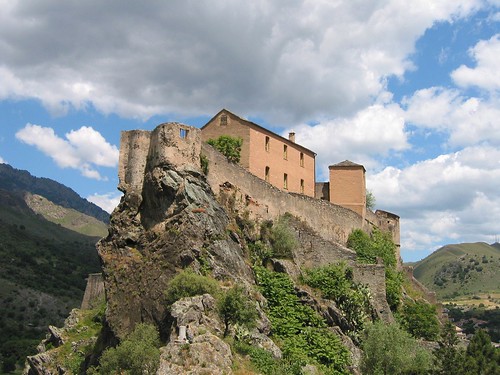
 photo credit: Roby Ferrari
photo credit: Roby Ferrari
Most medical institutions, and organizations recommend what they call the “Mediterranean diet†as ideal for human health. There is no denying that many of the European peoples living on the Mediterranean are healthier than Americans, though that is not much of an accomplishment, given how much factory food is eaten here.
The problem is that the “Mediterranean diet†pushed by the medical establishment has almost nothing to do with the real diet of the European peoples who live on the Mediterranean.
The “Mediterranean diet†recommended by the medical industry is very similar to the horrid “food pyramid†advocated by our government (though there are a few differences). The real Mediterranean diet had nothing in common with the food pyramid.
Contrary to the propaganda, the healthy peoples of the Mediterranean prized fatty pork, lamb, and goat, ate large quantities of unpasteurized full-fat cheese and milk, made heavy use of salted fish and brined vegetables, salty and fatty sausages, used butter and pork lard copiously in their traditional recipes, looked down on whole grains, ate small quantities of pasta as a side dish, hunted wild game such as rabbits and small birds, often went without vegetables, and generally ate as much saturated animal fat as they could get their hands on.
What Is the “Mediterranean Diet�
There are a number of European countries and several large islands that border the Mediterranean Sea, including, Spain, Italy, France, Croatia, Serbia, Greece, Crete, Corsica, Malta, Sardinia, and Sicily. I have studied the traditional cuisines of all these countries, including their Mediterranean regions. While each cuisine is unique, they do have a lot of common characteristics.
The Medical establishment claims that the traditional diets of the Mediterranean peoples had the following characteristics:
- Low salt
- Low fat, rejecting animal fats in favor of fats like olive oil and canola oil
- Ate red meat in tiny portions, only a couple times a month
- Ate mostly fruits, vegetables, legumes, whole grains
- Ate fish at least twice a week
- Avoided all saturated fats
- Ate 9 or more servings of fresh fruits and vegetables a day
Basically, none of these characteristics are accurate.
Mediterranean Peoples Ate Lots of Saturated Animal Fats
Almost every peasant kept a small herd of goats, or sheep. These animals were raised mostly for their milk, which was drunk raw, made into curds, made into a huge variety of full-fat cheeses, and widely used in cooking. The milk was unpasteurized and always full-fat. These dairy products were a huge part of their diet. The meat prized by the Mediterranean people was not lean, but fatty, consisting mostly of pork, lamb, and goat. Butter and lard were widely used in cooking, along with olive oil. While olive oil was widely used, it was used in addition to, not instead of animal fats. Canola oil was unknown, not even existing until it was invented in the late 20th century.
Mediterranean Peoples Ate Lots of Salt
Salting food was the main way of preserving food, given the warm climate, and the Mediterranean peoples were masters of salting fish, cheeses, and meat. They had hundreds of traditional recipes for meat sausages, which were heavily salted to preserve them, and contained a large amount of animal fat. In the inland areas, most of the fish consumed was salted, and dozens of traditional recipes were developed for cooking salted fish. In fact, salted fish is still very popular, even though fresh fish is now widely available.
Mediterranean Peoples Ate Red Meat Whenever They Could Get It, Eating As Much of It As They Could
Meat is perhaps the food most prized by the peoples of the Mediterranean. Meat was often difficult to get, as the flocks of sheep and goats were needed mainly for their milk, and the people were often poor. Nevertheless, pigs were widely raised, and made into a multitude of sausages, which were eaten throughout the year. There are thousands of recipes for pork roasts, chops, stews, and braises. Lambs and goats would be barbecued whole for special occasions and holidays. The meat eaten on these occasions was not served in tiny portions, but feasted on. Various kinds of grilled lamb were a beloved specialty in every one of these countries. Veal was also a favorite, when available. Most peasants hunted the abundant rabbits, and various small birds, and ate them whenever possible.
Most of the people would have liked to eat meat much more often than they could. In fact, many of the immigrants that came to the USA from these countries were lured to the USA by the stories they had heard of cheap, abundant meat. But even in Malta, where most meat had to be imported and was very expensive, meat was eaten at least once a week.
Mediterranean Peoples Were Often Short of Vegetables, and Put Fat on their Bread
Because of the often arid climate, vegetables and fruits were only available in season, though many were preserved by drying. There were a number of times during the year when little fresh produce was available. Beans and potatoes were widely available, and often eaten. Grains usually meant bread, which was usually not whole grain, and usually eaten with butter, or olive oil, or pork lard. In fact, raw pork lard smeared on bread is a traditional combination in rural Italy.
Mediterranean Peoples Did Not Eat Fish at Least Twice a Week
Most of the people in these countries lived inland, often in the mountains, and avoided the coast, though there were some coastal cities and fishing villages. There were two reasons for this. First, many coastal areas were infested by malaria-carrying mosquitoes. Second, pirates were a real danger during most of the history of this region. These pirates specialized in raiding coastal villages, and most of the villagers responded by moving inland, to the easily defended hills and mountains. Most of the food in these areas was of animal origin. Fish was eaten (especially when meat was forbidden during Lent and other such religious events), but it was usually salted or dried. Because of the lack of roads, it was very hard to get fresh fish to the hills and mountains, even on islands like Corsica and Sardinia.
Mediterranean Peoples Did Not Eat Nine or More Servings of Fresh Produce a Day
As discussed above, the variety of available fruits and vegetables was limited, and seasonal. The supply of food was often limited, and it is doubtful that most people ate nine servings of anything a day. Most calories came from dairy products, the full-fat cheeses and milk produced by the herds.
The Origin of the Mainstream “Mediterranean Diet “Was Based on What the People Ate During a Wartime Food Shortage
The first doctor to write of the “Mediterranean diet†was stationed in poor coastal areas of Italy, in 1945, during the last days of World War II. Food—especially the most valuable foods such as meat and butter—were in very short supply, and the hungry people ate whatever they could get. If they ate their bread dry, it was because they could not find fat to put on it, because of the food shortage. To portray what they ate during this wartime food shortage as their traditional diet was a mistake.
The “Mediterranean Diet†Is Really the Medical Diet
The medical and food industries have tried to portray the low-fat, low-protein, high-carb diet they favor as being traditional. It is not traditional. In fact, no traditional people anywhere, in all of history, ever ate a diet like this. “Mediterranean†sounds a lot better than “medical,†but the diet they advocate is the medical diet. The only thing the medical diet has in common with the Mediterranean diet is the first three letters of their names.
This post is part of Real Food Wednesday, Fight Back Friday and Monday Mania blog carnivals.
RSS feed for comments on this post.
Sorry, the comment form is closed at this time.
Read more
« Food Safety, Not Food Slavery! Stop S510!
Seven Reasons to Attend the Weston A. Price Foundation Conference »
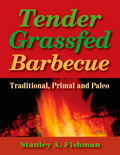
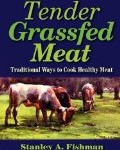
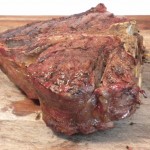 Photos of recipes from the new book Tender Grassfed Barbecue
Photos of recipes from the new book Tender Grassfed Barbecue
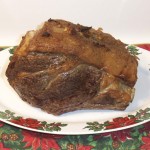 Photos of recipes from the cookbook Tender Grassfed Meat
Photos of recipes from the cookbook Tender Grassfed Meat
The Grassfed Meat Challenge: Busting Myths About Meat, Part I | Agriculture Society posted on October 21, 2010:
[…] of the book and the web site, Tender Grassfed Meat has a great post about the Mediterranean Diet, Call It Medical, Not Mediterranean. As often discussed by medical and health professionals, the emphasis they place on people’s […]
the REAL Mediterranean diet posted on October 29, 2010:
[…] medical diet has in common with the Mediterranean diet is the first three letters of their names. http://www.tendergrassfedmeat.com/20…mediterranean/ __________________ – Jim […]
Agriculture Society » The Grassfed Meat Challenge: Busting Myths About Meat, Part I posted on January 3, 2011:
[…] of the book and the web site, Tender Grassfed Meat has a great post about the Mediterranean Diet, Call It Medical, Not Mediterranean. As often discussed by medical and health professionals, the emphasis they place on people’s […]
off the shelf: oldies but goodies posted on April 19, 2011:
[…] Tender Grassfed Meat: Call It Medical, Not Mediterranean […]
Why choose grassfed over grain-fed meat | Traditional Wellness Wisdom posted on April 9, 2015:
[…] Meat and the web site, Tender Grassfed Meat has a great post about the Mediterranean Diet, Call It Medical, Not Mediterranean.  As discussed in the beginning of this article, conventional medical and health professionals […]
Monday Morning Mix-Up 10/11/10 - Kelly the Kitchen Kop posted on April 24, 2015:
[…] I always knew there was something about the Mediterranean Diet that bugged me, but couldn’t put my finger on it. Probably because I didn’t know all these powerful facts that Stanley shares in his post: Call It Medical, Not Mediterranean. […]